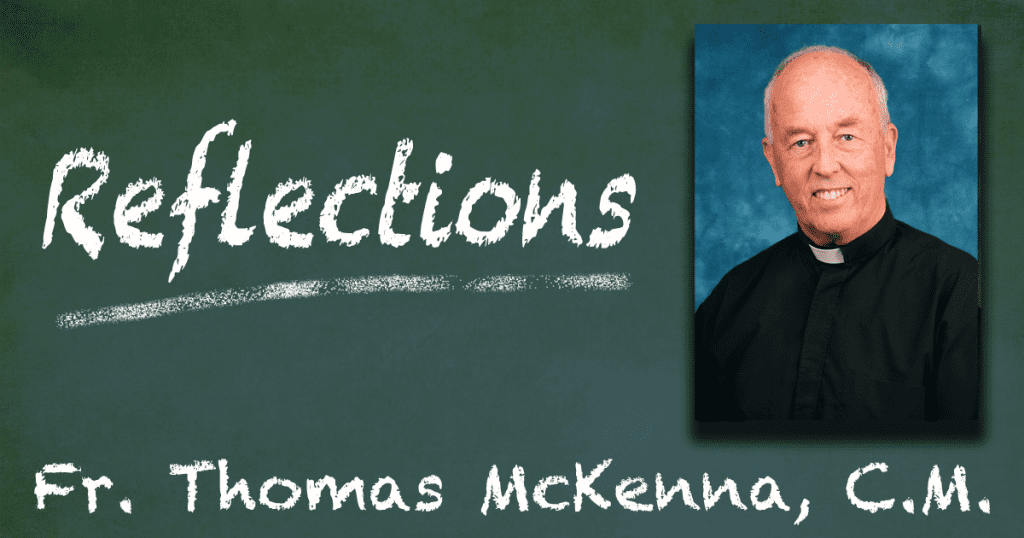
“Soaked Through and Through by Sense of God’s Reality” – Psalm 82
My Father loved and listened to classical music. Looking back on that, it’s a bit surprising because he was from a working class home, never graduated high school, played semi-pro football, and so on. Not that he ever looked down on people who didn’t like classical music, but once or twice he did say this: “I feel sorry for people who don’t appreciate this music. They don’t know what they’re missing.”
It got me to thinking about people who don’t seem to have a taste for God, who don’t seem to have a feel for things spiritual, people who somehow don’t resonate to the chords of God’s presence that others hear.
I used to teach an undergrad course on general spirituality at St. John’s University in New York. And usually halfway through the term, most people in it would start to “get it;” i.e., tune into the reality of a realm of “more than” (more than the surface appearances of things). But I remember one young man, good hearted and honest, who said literally just the opposite. “Professor, I could see you were trying hard to get it across, and I could tell the others were picking up on things. But I have to say, I just couldn’t “get it.” [Note: he didn’t fail; students weren’t marked on faith!)
I mention him (and I’m sure you know people like him) to set up a contrast with the many others who do in fact seem to get it –“it” being that awareness, however dim, of God in their lives, that beyond-the-words sense that there is something more, somebody more, laced right into being alive, that there’s a presence flowing along all through human experience.
One person with this awareness was the psalmist. Certainly all through the psalter, but in a special way in Ps 82. “My soul yearns and pines for the courts of the Lord. My heart and my flesh cry out for the living God… I had rather one day in your courts than a thousand elsewhere; I had rather lie at the threshold of the house of my God than dwell in the tents of the wicked. Blessed are they who dwell in your house.”
Here we have not only a God-aware person, but even a God-impassioned one. In the midst of life, on every day and on special days, this person “gets it.” This singer of psalms knows God’s realness. This witness, like those in the Acts (4:20), can testify to that realness (better, “livingness”) because he’s touched and tasted and heard the personal substance of God running through all of life. This psalmist would most likely feel sorry for anyone who “didn’t get it” — and hopefully wouldn’t get to feeling superior because of that.
Evelyn Underhill puts this lyrically: “A spiritual life is simply a life in which all that we do comes from the center, where we are anchored in God: it’s a life soaked through and through by a sense of God’s reality and claim – and self-given to the great movement of God’s will.”
There are some things here I don’t want to say:
- that people who have little sense of God’s presence (in the world and their lives), are not in contact with God, do not have the loving God present to them. God can’t be reduced to any quality of human experience — and who knows how God works?
- that it’s automatically a mark of progress in the spiritual life that a person experiences the consolation of God’s loving nearness. We all know about dryness and the experience of God’s absence (desolation), and how feelings are not always a reliable indicator of one’s standing with God.
But what I do want is to call attention to those times in a life when there is this “yearning for the courts of the Lord,” this awareness of “lying at the threshold of the house of my God,” these times of “heart and flesh crying out for the living God.”
Such experiences call us to give a thanks for the times of “being anchored in God, being soaked through and through by a sense of God’s reality and claim.” And especially for us in the Vincentian tradition to give a thanks for those times when we’ve felt ourselves “claimed by and given to the great movement of God’s will,” as we’ve gone about our service.
We can’t use this sense of God’s hovering near as a kind of spiritual platform from which to look down on others who haven’t had such experience. But we can in a certain sense, “feel sorry for them. Because they don’t know what they’re missing.”







0 Comments